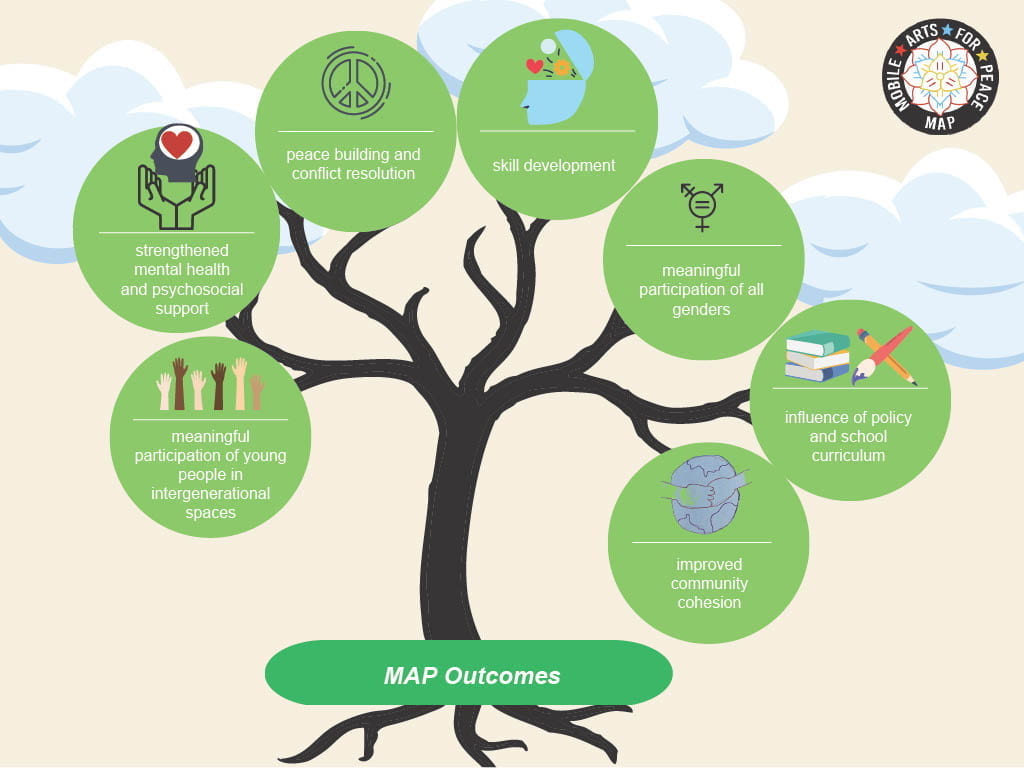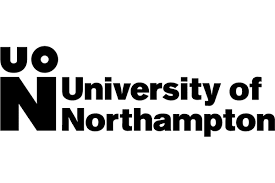MAP takes a multi-method, longitudinal monitoring, evaluation, and learning approach that seeks to work in partnership with young people through co-production, inter-generational mentoring, reflective practice, and skills development. We deliver this through our International Youth Advisory Board and engagement through our partner teams in-country.
Our approach to MEL seeks to embed our values of:
- Centring young people’s active roles and contributions within research processes,
especially in relation to MEL - Focusing on understanding the impact on young people themselves
- Exploring cross cultural and cross project learnings
- Seeking adaptability and agility, and
- Empowering stakeholders and partners
Our Monitoring, Evaluation & Learning supports participants, community members, policymakers, organisational staff, funders, researchers, and others to reflect and capture learnings: the strengths, challenges, and areas for growth in the research programme. Importantly, it also enables adaptations and changes to be made throughout.

MAP Outcomes and our Theory of Change (ToC)
The MAP approach to MEL evaluates our Theory of Change. This MAP Outcomes tree summarises the intended outcomes for the project.
READ MORE ON THE MAP THEORY OF CHANGE

The MEL Journey
The MEL journey shows how ongoing monitoring provides the evidence of changes and impact for the MAP project.

How we work
Youth Advisory board
Our Youth Advisory Board is integral to everything we do. They are a group of young enthusiastic researchers and artists from across the four countries who have helped shape the tools, collect data and feedback to the large grants and project teams.
The data collected will be analysed globally with the UoE working alongside Rwanda and Nepal, and UoN working with Kyrgyzstan and Indonesia.
Indonesia’s Youth Advisory Board (YAB) members, Haikel and Indri, travelled to Lincoln in November 2022 to participate in the first MAP International Gathering Conference.
This video is their journal from that adventure, recorded in pictures, sound and words.
Lead partners
Our MEL is led through grants awarded to the University of Northampton and University of Edinburgh to deliver high-quality, participatory, in-depth learning for the project.


if you have any questions related to our MEL approach please contact Laura at the University of Edinburgh regarding the Toolbox or Rich at the University of Northampton regarding the Survey.
MEL in Action
MEL Toolbox and Youth Researchers tools
The MEL tools are mixed methods i.e., there are both quantitative surveys as well as a Toolbox of qualitative arts-based tools, such as a Wellbeing Thermometer, an Outcome Vision Mural, River Journeys, and Proverb Dramas. Our projects select the tools appropriate for their contexts.
Building survey skills
Here is a video that was made to support the skills development and mentoring of our young researchers using the survey. It was produced in all four languages.
River Journey tools
Below is a picture of the River Journey tool being used by Youth Advisory Board members leading their peers in Indonesia. They are exploring social issues in their community.


Read our MEL reports
Further reading
Our MEL is informed by several theorists including Sen’s (1999) Capabilities Approach, and Fricker’s (2007) Epistemic Justice, Social Impact Measurement & Theory of Change.
References
Fricker, M. (2007). Epistemic Injustice: Power & the Ethics of Knowing. Oxford: Oxford University Press.
Sen, A. (1999). Development as Freedom. Oxford: Oxford University Press.
Further reading
Lee, L., Currie, V., Saied, N., & Wright, L. (2020). Journey to hope, self-expression and community engagement: Youth-led arts-based participatory action research. Children and Youth Services Review, 109, 104581.
Mkwananzi, F., M. Cin, and T.Marovah.(2021).“Participatory Art for Navigating Political Capabilities and Aspirations among Rural Youth in Zimbabwe.” Third World Quarterly 42 (12): 2863–2882
Soliman M. Sulin L. & Karlıdağ-Dennis E. (2022). Building capabilities of youth through participatory oral history project: the South Hebron hills a Palestinian case study. Journal of Human Development and Capabilities 116–135. https://doi.org/10.1080/19452829.2021.2019690
Walker, M., and A. Boni.(2020). Participatory Research, Capabilities and Epistemic Justice. Cham: Palgrave.
